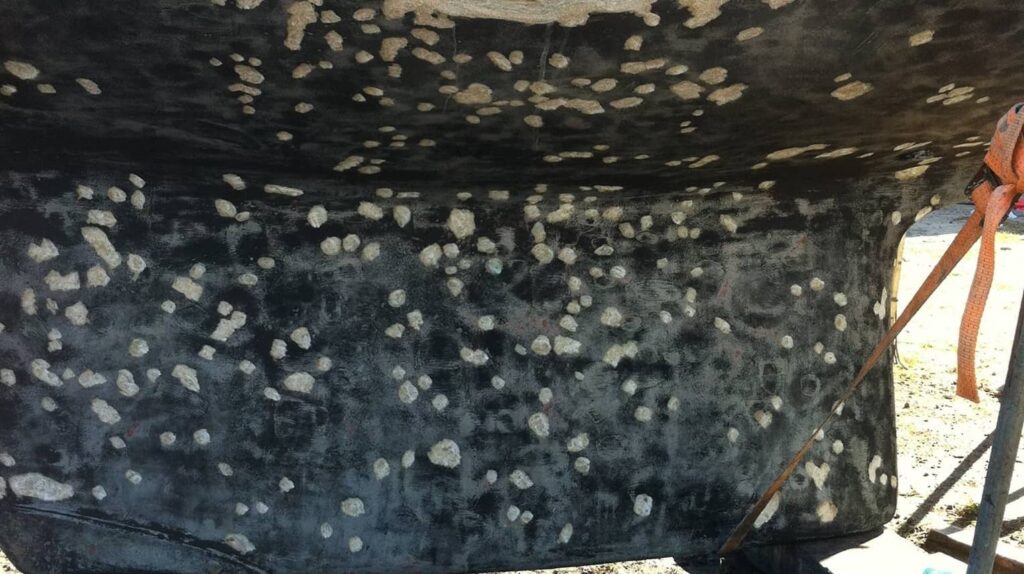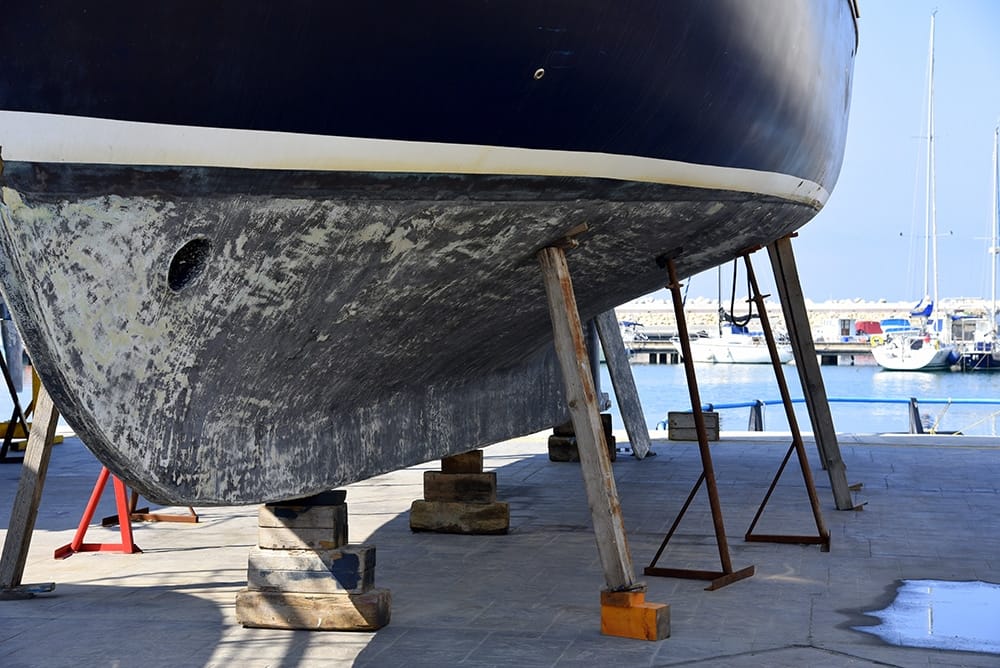Should You Buy a Boat With Osmosis?
One of the most frequently asked questions people on the market for a used sailboat ask is, “Should I buy a boat with osmosis?” Before we answer whether or not you should buy that boat, we should take a look at what osmosis is and what causes it.
What is Osmosis?
Osmosis is the natural tendency of liquids to balance the difference in pressure between the vessel’s existing humidity and the seawaters. The gelcoat is not a completely waterproof barrier, so moisture penetrates and reaches the fiberglass coating.
Osmosis is considered to be the number one enemy of fiberglass hull boats. The vapor of moisture transfers through the gelcoat, causes osmosis, and affects the fiberglass coating.
If a fiberglass boat does not show signs of osmosis in its first 4 years of use, then the chances of getting the “plague” are minimal. The risk of osmosis also increases in freshwater and at high temperatures.
Also, water and moisture in the bilges generally helps the development of osmosis.
How to Detect if a Boat Has osmosis?
It is not always easy to detect osmosis on a boat. Only when the bubbles are visible can we easily check if the boat has been hit by osmosis. If these bubbles (usually of different sizes) contain brownish liquid with vinegar odor we have good reason to believe that the boat has been affected by osmosis. Now if they are dry and hard, then they are probably caused by air or solvent retention during paintwork and have no effect on the fiberglass.
If the bubbles are not visible, this does not mean that the boat has not been hit by osmosis. This is because it takes some time for the bubbles to appear on the hull’s surface. In addition, preventive treatments cannot stop the osmosis process, so a professional inspection of the boat is recommended. He will confirm the existence or chance of the boat suffering from osmosis.

Is Osmosis Really a Problem?
Many people say that osmosis is a problem only when you are trying to sell a boat and not when you own it. They also say that it has not been proven that osmosis actually weakens the hull or that degrades it in any way. I would say it is a problem if you have to repair a boat with osmosis because it costs a fortune.
The truth is that no boat has ever sunk because of osmosis. However, it annoying, but if treated properly will be a thing of the past. The repair can be expensive, though.
Some other people say that osmosis blisters are not only a cosmetic problem. Additionally, they say that osmosis will cause a 20-30% loss of structural strength, which no treatment can restore. However, non of these claims have any factual data to back them up and are simply opinions from people you talk to around the marina.
Should You Actually Buy a Boat with Osmosis?
Now let’s get on with the age-old question. Obviously, the decision should be based on what you see, what the surveyor sees, and the actual price of the boat. If it is a bargain relevant to the market, then you should at least consider buying the boat. However, you should search the market extensively because if you had two identical boats side-by-side, one with osmosis and one without, at a similar price, you would be crazy to buy the one with it. I mean, why buy a boat with a preexisting condition? Especially since the offerings for used boats is huge.
If you are in the camp that thinks that osmosis is only a cosmetic problem, then when looking to buy a boat with it will be a great opportunity for you to haggle the price down.
Also, if you want to repair the osmosis blisters, the seller can tell you that you can only repair that small part with the problem, and that will be cheap. The problem won’t necessarily be fixed just by treating the existing blisters. After a while, you may find that they start appearing elsewhere.
Should I Buy a Boat With Osmosis? – Final Thoughts
No, you should not buy a boat with osmosis unless it is a phenomenal deal simply because there are thousands of boats without osmosis and you will probably be able to find another boat at a similar price. If you go and buy a boat with osmosis you might regret it later, not because it will sink or have any serious issues but because people will not want to buy it either unless you give them a phenomenal deal as well.
However, as you have probably understood by now, the jury is still out there on this question. I have seen people buying boats with osmosis and be happy with them for years. Of course, they take them out of the water once per year to winterize them anyway which could also help. I have also seen people who know their stuff running away from a good deal because of signs of osmosis. In any case, you should always consult with a specialist before buying a boat since many problems, like osmosis, could be hidden.
At the end of the day, this will be your decision and ultimately it would depend on the price. Is the deal good enough to buy a boat Dispite the osmosis?
